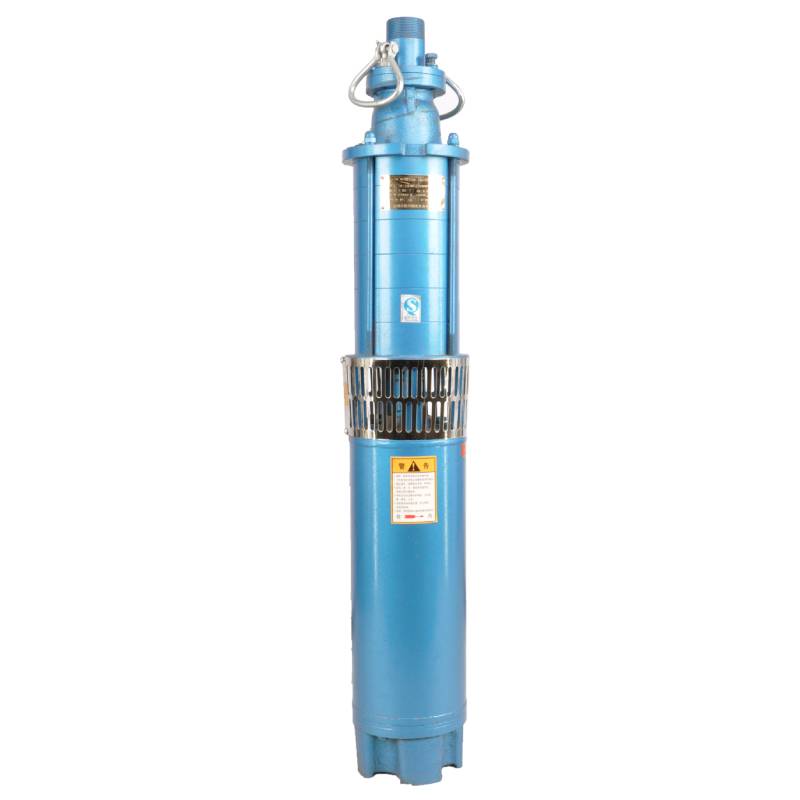8 月 . 09, 2024 06:30 Back to list
Exploring the Benefits and Applications of Deep Well Submersible Pump Technology for Efficient Water Extraction
Deep Well Submersible Pumps An Overview
Deep well submersible pumps are specialized devices designed to lift water from deep underground sources, making them essential components in various water supply systems, agriculture, and irrigation. Their ability to operate underwater distinguishes them from conventional pumps, and they offer a range of advantages that have made them the preferred choice for many applications.
How Deep Well Submersible Pumps Work
Submersible pumps consist of a motor and a pump mechanism that are housed together in a single unit, allowing them to be submerged deep in the well. The motor, which is hermetically sealed, drives the impellers situated below it. When activated, the impellers force water into the discharge pipe, drawing it from the well and transporting it to the surface. This design allows for a higher efficiency as the pump can operate under the water level, significantly reducing the risk of cavitation compared to other pump types.
Design and Construction
Deep well submersible pumps are engineered to withstand harsh environments. Typically made of stainless steel or other corrosion-resistant materials, they are robust enough to tackle the challenges of sand, mineral deposits, and other abrasive materials present in groundwater. The pumps are also designed with features to control the flow rate and pressure, ensuring that they meet the specific needs of their application while maintaining optimal performance.
Applications
The versatility of deep well submersible pumps makes them suitable for a variety of applications
1. Agriculture In farming, these pumps are widely used for irrigation purposes. They facilitate consistent water supply to crops, improving yield and ensuring sustainability in farming practices.
2. Residential Water Supply Many homes located in rural areas rely on deep well water systems. Submersible pumps ensure a reliable water supply for domestic use, including drinking, bathing, and irrigation.
deep well submersible pumps

3. Industrial Use Industries often use submersible pumps for dewatering sites, handling wastewater, and maintaining water levels in various processes.
4. Geothermal Heating These pumps are also utilized in geothermal heating systems, where they help circulate water through geothermal wells to provide heating during colder months.
Advantages
Deep well submersible pumps offer numerous advantages over traditional surface pumps
- Efficiency Due to their submersible design, these pumps can maintain higher efficiencies, especially at greater depths, thus utilizing less energy while delivering higher water flow rates.
- Less Maintenance When installed properly, submersible pumps require less maintenance. They are protected from external elements, and as long as the motor is properly sealed, the risk of damage from water or debris is minimal.
- Quiet Operation Operating underwater significantly reduces noise pollution, making these pumps an ideal choice for residential settings.
- Space-Saving Design The compact design of submersible pumps allows for easy installation, even in confined spaces, while also eliminating the need for extensive surface pump and suction piping systems.
Conclusion
As the demand for efficient water management increases, deep well submersible pumps are becoming more prevalent in various sectors. Their robust design, efficiency, and versatility make them an indispensable tool in extracting groundwater without compromising on performance or reliability. Whether for agricultural purposes, residential water supply, or industrial applications, these pumps play a critical role in supporting sustainable water use practices. Understanding their operation and advantages helps users make informed decisions about their water supply solutions, ultimately leading to better resource management and utilization.
-
Your Guide to Deep Well Pumps
NewsOct.31,2024
-
Why Choose a Stainless Steel Deep Well Pump?
NewsOct.31,2024
-
Understanding Water-Filled Submersible Pumps
NewsOct.31,2024
-
Understanding SS Submersible Pumps
NewsOct.31,2024
-
Reliable Submersible Well Pumps for Your Water Supply Needs
NewsOct.31,2024
-
Choosing the Right Submersible Pump for Your Water Management Needs
NewsOct.31,2024
-
 Understanding Water-Filled Submersible PumpsWhen it comes to selecting the right pump for your water management needs, understanding the different types available is crucial.Detail
Understanding Water-Filled Submersible PumpsWhen it comes to selecting the right pump for your water management needs, understanding the different types available is crucial.Detail -
 Guide to Installing a Deep Well Submersible PumpWhen dealing with deep wells, a deep well submersible pump is often the most effective solution for extracting water from significant depths.Detail
Guide to Installing a Deep Well Submersible PumpWhen dealing with deep wells, a deep well submersible pump is often the most effective solution for extracting water from significant depths.Detail -
 Finding the Right Submersible PumpWhen seeking an efficient solution for pumping water from deep wells, sumps, or other applications, the submersible pump is a leading choice.Detail
Finding the Right Submersible PumpWhen seeking an efficient solution for pumping water from deep wells, sumps, or other applications, the submersible pump is a leading choice.Detail
